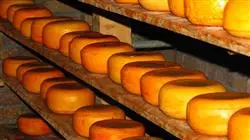University certificate
The world's largest faculty of veterinary medicine”
Introduction to the Program
This Postgraduate certificate is the best option you can find to specialize in Validation of Methodologies Applied to R&D&I Projects"

TECH's Postgraduate Diploma in Validation of Methodologies Applied to R&D&I Projects is the most complete among those offered in universities at this time.
This course reviews the fundamental aspects that confirm that the critical control points are effective and are ensuring the safety of the food produced, being clear about the need and correct formulation of the critical control points.
It also determines the tools necessary to validate the controls in place, verify the effectiveness of these controls and have the confidence to implement sound control processes within the food safety management system.
It also addresses the "specific prerequisite" programs that support the correct management of critical control points.
Analyze the root cause with effective qualitative and quantitative methods to deal with deviations from internal audits, inspections, complaints and internal deviations, in order to provide objective data for the validation of the controls carried out.
On the other hand, students will also learn about the implementation and development of R&D projects in the food field. To this end, the economic support systems for the implementation of the projects, the legal conditions and, especially, the methodology for the operation of the projects in terms of planning, availability of resources, control and follow-up are defined.
The adaptation to project work in the food environment is of great importance to carry out innovation, the development of new products or the improvement of food safety conditions and the use of food products and ingredients used.
The teachers of this Postgraduate certificate are university professors and professionals from various disciplines in primary production, the use of analytical and instrumental techniques for quality control, the prevention of accidental and intentional contamination and fraud, regulatory schemes for food safety certification (Food Safety/Food Integrity) and traceability (Food Defence and Food Fraud/Food Authenticity). They are experts in food legislation and regulations on quality and safety, validation of methodologies and processes, digitalization of quality management, research and development of new foods and finally, the coordination and execution of R&D&I projects. All this is necessary to achieve a complete and specialized training, highly demanded by professionals in the food sector.
It is an educational project committed to training high quality professionals. A program designed by professionals specialized in each specific subject who face new challenges every day.
Don't miss the opportunity to train with us. It's the perfect opportunity to advance your career"
This Postgraduate certificate in Validation of Methodologies Applied to R&D&I Projects contains the most complete and up-to-date educational program on the market. The most important features of the program include:
- The development of case studies presented by experts in veterinary food safety
- The graphic, schematic, and eminently practical contents with which they are created, provide scientific and practical information on the disciplines that are essential for professional practice
- News on Validation of Methodologies Applied to R&D&I Projects
- Practical exercises where self-assessment can be used to improve learning
- Special emphasis on innovative methodologies in Validation of Methodologies Applied to R&D&I Projects
- Theoretical lessons, questions to the expert, debate forums on controversial topics, and individual reflection assignments
- Content that is accessible from any fixed or portable device with an Internet connection
This course is the best investment you can make in selecting a refresher program to update your knowledge in Validation of Methodologies Applied to R&D Projects"
It includes, in its teaching staff, professionals belonging to the field of veterinary food safety, who pour into this training the experience of their work, in addition to recognized specialists from reference societies and prestigious universities.
The multimedia content, developed with the latest educational technology, will provide the professional with situated and contextual learning, i.e., a simulated environment that will provide immersive training programmed to train in real situations.
This program is designed around Problem Based Learning, where the specialist must try to solve the different professional practice situations that arise during the course. For this purpose, the professional will be assisted by an innovative interactive video system developed by recognized experts in Validation of Methodologies Applied to R&D&I Projects and with great experience.
This training has the best didactic material and educational technology, which will allow you a contextual study that will facilitate your learning"

This course will allow you to combine your studies with your professional work as it is 100% online"
Why study at TECH?
TECH is the world’s largest online university. With an impressive catalog of more than 14,000 university programs available in 11 languages, it is positioned as a leader in employability, with a 99% job placement rate. In addition, it relies on an enormous faculty of more than 6,000 professors of the highest international renown.

Study at the world's largest online university and guarantee your professional success. The future starts at TECH”
The world’s best online university according to FORBES
The prestigious Forbes magazine, specialized in business and finance, has highlighted TECH as “the world's best online university” This is what they have recently stated in an article in their digital edition in which they echo the success story of this institution, “thanks to the academic offer it provides, the selection of its teaching staff, and an innovative learning method aimed at educating the professionals of the future”
A revolutionary study method, a cutting-edge faculty and a practical focus: the key to TECH's success.
The most complete study plans on the university scene
TECH offers the most complete study plans on the university scene, with syllabuses that cover fundamental concepts and, at the same time, the main scientific advances in their specific scientific areas. In addition, these programs are continuously being updated to guarantee students the academic vanguard and the most in-demand professional skills. In this way, the university's qualifications provide its graduates with a significant advantage to propel their careers to success.
TECH offers the most comprehensive and intensive study plans on the current university scene.
A world-class teaching staff
TECH's teaching staff is made up of more than 6,000 professors with the highest international recognition. Professors, researchers and top executives of multinational companies, including Isaiah Covington, performance coach of the Boston Celtics; Magda Romanska, principal investigator at Harvard MetaLAB; Ignacio Wistumba, chairman of the department of translational molecular pathology at MD Anderson Cancer Center; and D.W. Pine, creative director of TIME magazine, among others.
Internationally renowned experts, specialized in different branches of Health, Technology, Communication and Business, form part of the TECH faculty.
A unique learning method
TECH is the first university to use Relearning in all its programs. It is the best online learning methodology, accredited with international teaching quality certifications, provided by prestigious educational agencies. In addition, this disruptive educational model is complemented with the “Case Method”, thereby setting up a unique online teaching strategy. Innovative teaching resources are also implemented, including detailed videos, infographics and interactive summaries.
TECH combines Relearning and the Case Method in all its university programs to guarantee excellent theoretical and practical learning, studying whenever and wherever you want.
The world's largest online university
TECH is the world’s largest online university. We are the largest educational institution, with the best and widest online educational catalog, one hundred percent online and covering the vast majority of areas of knowledge. We offer a large selection of our own degrees and accredited online undergraduate and postgraduate degrees. In total, more than 14,000 university degrees, in eleven different languages, make us the largest educational largest in the world.
TECH has the world's most extensive catalog of academic and official programs, available in more than 11 languages.
Google Premier Partner
The American technology giant has awarded TECH the Google Google Premier Partner badge. This award, which is only available to 3% of the world's companies, highlights the efficient, flexible and tailored experience that this university provides to students. The recognition as a Google Premier Partner not only accredits the maximum rigor, performance and investment in TECH's digital infrastructures, but also places this university as one of the world's leading technology companies.
Google has positioned TECH in the top 3% of the world's most important technology companies by awarding it its Google Premier Partner badge.
The official online university of the NBA
TECH is the official online university of the NBA. Thanks to our agreement with the biggest league in basketball, we offer our students exclusive university programs, as well as a wide variety of educational resources focused on the business of the league and other areas of the sports industry. Each program is made up of a uniquely designed syllabus and features exceptional guest hosts: professionals with a distinguished sports background who will offer their expertise on the most relevant topics.
TECH has been selected by the NBA, the world's top basketball league, as its official online university.
The top-rated university by its students
Students have positioned TECH as the world's top-rated university on the main review websites, with a highest rating of 4.9 out of 5, obtained from more than 1,000 reviews. These results consolidate TECH as the benchmark university institution at an international level, reflecting the excellence and positive impact of its educational model.” reflecting the excellence and positive impact of its educational model.”
TECH is the world’s top-rated university by its students.
Leaders in employability
TECH has managed to become the leading university in employability. 99% of its students obtain jobs in the academic field they have studied, within one year of completing any of the university's programs. A similar number achieve immediate career enhancement. All this thanks to a study methodology that bases its effectiveness on the acquisition of practical skills, which are absolutely necessary for professional development.
99% of TECH graduates find a job within a year of completing their studies.
Postgraduate Certificate in Validation of Methodologies Applied to R&D&I Projects
TECH Global University presents you the Postgraduate Certificate in Validation of Methodologies Applied to R&D&I Projects, a unique opportunity to acquire the necessary skills in the validation of methodologies and ensure success in your research, development and innovation projects. During a period of 1 to 3 months, you will have access to online classes taught by experts in the field of methodology validation. You will learn how to evaluate the effectiveness and reliability of methodologies applied in R&D&I projects, ensuring that they meet quality standards and generate solid and verifiable results.
Broaden your knowledge in validation of methodologies applied to R&D&I projects.
At TECH Global University, we understand the importance of flexibility in your learning. That is why all our classes are online, allowing you to access the content from anywhere and at any time that fits your schedule. You will also be able to interact with professors and classmates from all over the world, enriching your educational experience and expanding your professional network. Throughout the program, you will have access to up-to-date resources, support materials and real case studies to deepen your understanding of validating methodologies in R&D projects. You will participate in practical activities and exercises that will allow you to apply the acquired knowledge and develop key skills to ensure quality and excellence in the execution of innovative projects. Do not miss the opportunity to enhance your skills in the validation of methodologies for R&D&I projects. Enroll in the Postgraduate Certificate program and gain the necessary skills to drive innovation and progress in your field of expertise.







